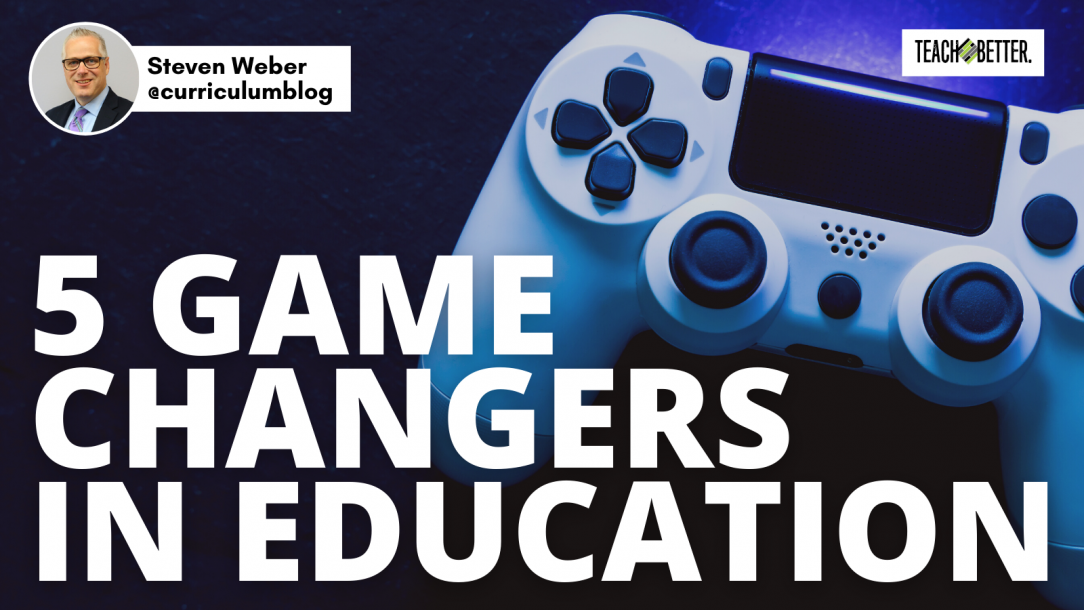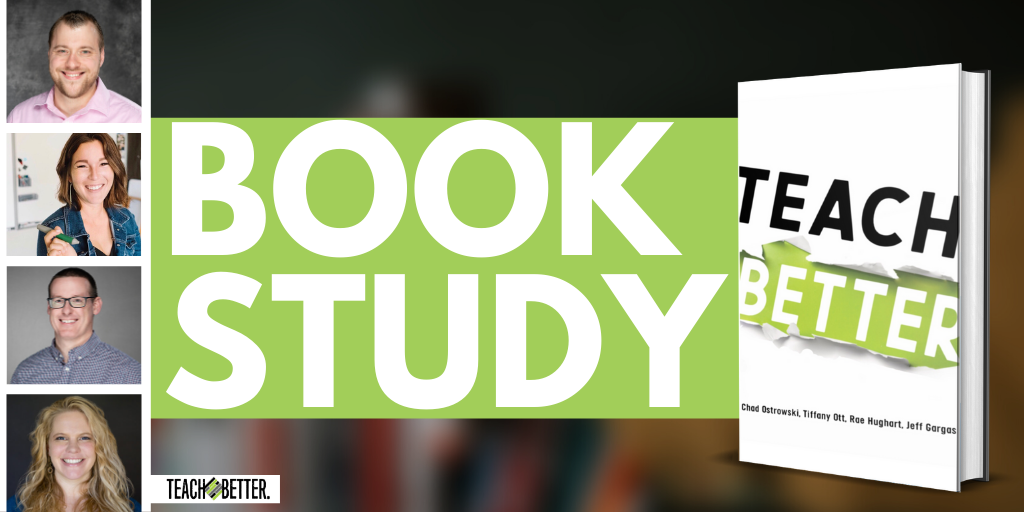TL;DR:
- Each day, when we enter schools, we have the opportunity to create a game-changing moment for students.
- 5 game changers in education include formative assessments, learning targets, personalized learning, writing, and student-led questions.
- When school staff focus on these five game changers, they will begin to see self-directed learners, contributors, and problem solvers.
Have you ever witnessed a game-changing moment in sports? When Michael Jordan hit the game-winning shot against the Cavs in Game 5 of the 1989 Eastern Conference Playoffs, it was a game-changer. This moment became known as “The Shot.” In the 1999 Women’s World Cup, Brandi Chastain scored on the fifth penalty kick in a shootout between the United States and China. This game-changing moment sealed the victory and Team USA earned their second World Cup title.
In 2013, Auburn shocked the nation with a game-changing play with no time remaining on the clock. Adam Griffith, the Alabama kicker, attempted a 57-yard field goal try. It fell short and into the waiting arms of Auburn’s Chris Davis, who was roughly nine yards back in his own end zone. Davis returned the kick the length of the field for the winning touchdown (officially a 100-yard return). Most people who were watching the game were in shock.
A game changer is an event, idea, or procedure that affects a significant shift in the current manner of doing or thinking about something. Each day, when we enter schools, we have the opportunity to create a game-changing moment for students.
Creating change is not complicated, but it involves focusing on the fundamentals and setting students up for success! Jordan, Chastain, and Davis had practiced their craft so many times that they were prepared for the moment. They were ready to perform at the highest level and under the spotlight because they had practiced and seen the winning shot or play. How can we create classrooms that prepare students for success at the next level?
5 Game Changers In Education
Game Changers in Education #1: Formative Assessment
Formative assessment supports student understanding. When students understand the learning target, they know what they are aiming for. Formative assessments may appear in the form of a Post-It note, ticket out the door, role play, pre-assessment, presentation, thumbs-up/thumbs-down vote, Google Form, artwork, accountable talk, or a quick write.
Cassandra Erkens (2015) wrote, “Feedback is the intervention tool with which teachers can empower learners to get into the driver’s seat of their own instructional decision-making.” Students can receive feedback from a peer, a teacher, a rubric, or self-reflection. Once a student has a deeper understanding, the goal is to transfer the new understanding into the game of life.
When school staff focus on these five game changers, they will begin to see self-directed learners, contributors, and problem solvers. Click To TweetGame Changers in Education #2: Learning Targets
“Students cannot regulate learning, use thoughtful reasoning processes, set meaningful goals, or assess the quality of their own work unless they understand what success looks like in today’s lesson” (Moss, Brookhart, & Long, 2011). Learning targets provide students with the purpose of the lesson.
You may recall from the classic baseball movie Bull Durham that players who hit the Bull win a free steak. However, if a player hits the grass he wins a free salad. Teacher teams should clearly define or revisit the school/school district’s learning target(s). Then, work together as a team to ensure that students have an equal opportunity to learn the important goals outlined by teacher teams.
Game Changers in Education #3: Personalized Learning
Personalized learning has become a buzzword in education. Teachers and administrators use the term, but little has changed in most classrooms. Jill Thompson, former Personalized Learning Program Manager with Charlotte-Mecklenburg Schools, wrote Getting Started with Personalized Learning (2017). Recently, Thompson (2017) outlined 26 ways to incorporate Personalized Learning into your classroom practice.
Personalized learning allows students to focus on their strengths and to grow. Students should be seen as contributors and personalized learning allows each student to contribute. When students experience classrooms with choice, voice, critical thinking, collaboration, creativity, communication, and contribution, they will feel empowered for that assignment and future opportunities. A game-changing moment takes place in classrooms when students own their learning and begin to reflect on their own understandings.
Game Changers in Education #4: Writing
Writing is a lost art in some schools. If it’s not tested, it’s not taught has become the mantra. When was the last time students had a Quick Write to reflect on their work? When was the last time students were asked to write about their understanding, rather than write about content? What type of writing should a middle school student be able to produce in order to be classified as high school ready?
Writing is thought-provoking and it helps students organize their thoughts. Dalporto (2015) offers Seven Ways to Support Writing Across the Curriculum. Reading is fundamental, but writing is equally important. Create multiple opportunities for students to write. If you want to prepare students for college and careers, bring writing back and it doesn’t always need to be for a grade.
[scroll down to keep reading]Game Changers in Education #5: Student-Led Questions
Traditionally, teachers have asked questions and students have responded with answers. A shift is taking place in classrooms. Student-led questions are driving teaching and learning. When students design questions, it gives them something to chase.
Essential questions are still important in classrooms, but it is appropriate to allow students to create their own essential questions. Accountable Talk is a structured format for students, so all students know how to engage in the conversation and how to ask their partner thought-provoking questions. Accountable Talk is a method of inquiry that sharpens students’ thinking by reinforcing their ability to reflect and think critically.
There are multiple strategies for student-led questions, including Socratic Seminars. Determine how your grade level or course can use student-led questions to foster critical thinking, problem solving, and application of academic knowledge.
Conclusion
When you utilize formative assessment, learning targets, personalized learning, writing, and student-led questions, you will see student understanding increase. Teachers and administrators want to empower students to become lifelong learners who will be successful beyond high school.
Often, teaching focuses on what the teacher will do, rather than empowering students to become game changers! When school staff focus on these five game changers, they will begin to see self-directed learners, contributors, and problem solvers. Sports fans love a game-winning shot, goal, touchdown, or clutch performance. Begin using these game-changing strategies to prepare students for their future!
About Steven Weber
Dr. Steven Weber is the Associate Superintendent for Teaching and Learning with Fayetteville Public Schools (AR). His areas of research include curriculum design, formative assessment, professional learning, and school leadership.




